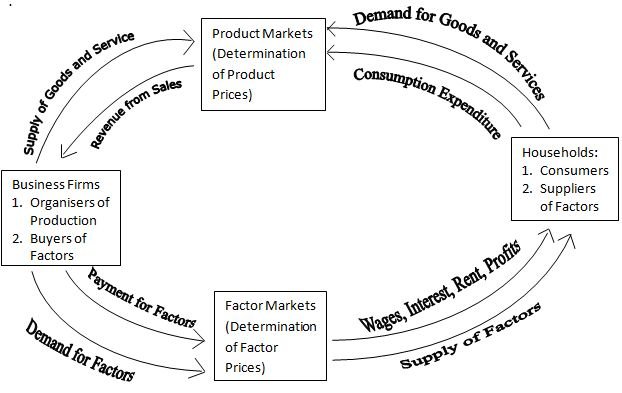Features of Capitalism
The distinguishing characteristics of capitalism are given below :
- The Right to Private Property: In the capitalist system, individuals are free to own, use and dispose of productive factors such as land, plant and machinery, capital, etc. They can use the personal property for individual gain. The owner is free to dispose of his property in any way he likes. Private property is a legal right and due to this right, property is privately owned by the people.
- The Right of Inheritance: This right allows the owner to transfer his/her property to his/her heirs after his/her death. The right of inheritance is also a legal right. It facilitates the transfer of capital from one generation to another thereby making the capitalist system perpetual.
- Freedom of Enterprise: In the capitalist system, everybody is free to engage in whatever economic activity he likes. The entrepreneur is free to produce any commodity and fix up it price, subject to the laws passed by the Government in public interest. Similarly, workers are free to join any employer of their choice.
- Freedom of Choice for Consumers: People are free to spend their incomes as they like. Every consumer is free to buy from any seller and consume any commodity in any quantity. In fact, the tastes and preferences of consumers direct production in a free market economy. Producer produce goods in accordance with the desires of consumers. This is known as the principle of consumer sovereignty.
- Profit Motive: Another distinctive feature of capitalism is that all economic activities are guided by the motive of earning profits. The entrepreneurs choose to produce those goods and services which will yield them greater profits. The profit motive induces people to work hard and put the factors of production into their most productive use.
- Competition: In a free market economy, there are a large number of buyers and sellers. Due to large number of competing firms, an individual firm cannot control the market. Profit motive induces new firms to enter the market thereby increasing competition. There are no barriers to the entry and exist of firms in an industry.
- Price Mechanism: In the capitalist system, all decisions concerning production, distribution and exchange are based on the price mechanism, The free play of the market forces of demand and supply determine the prices of goods and services. Producers are free to fix up prices of their products and consumers are free to offer prices at which they want to buy. Similarly, the producers offer prices all which they want to employ the factors of production (land, labour, capital, etc.)
The working of the free market economy economy through the market and price mechanism is shown in fig. 14.1
The fig. 14.1 shows that households provide productive factors to business firms and firms make payments in the form of wages, interest, rent, etc. The business firms in turn provide goods and services to the households for consumption purposes. The households pay for the goods and services which they from business firms.
- Role of the Government: There exists a Government but it does not interfere with the day-to-day functioning of the economy. Its main job is to maintain law and order, ensure the country’s security and enact laws necessary for public welfare. There is no central planning to decide what to produce, how to produce and for whom to produce.

